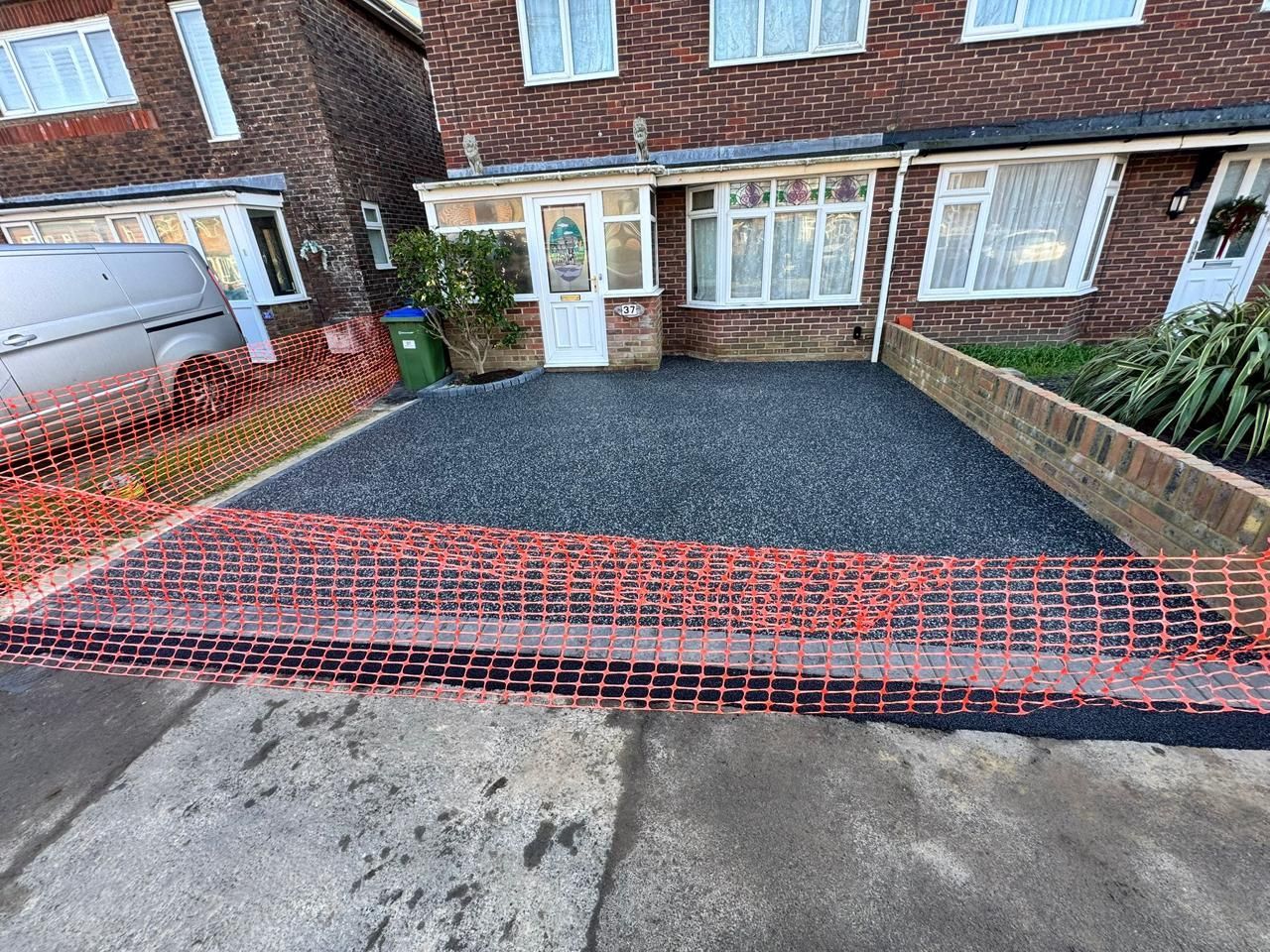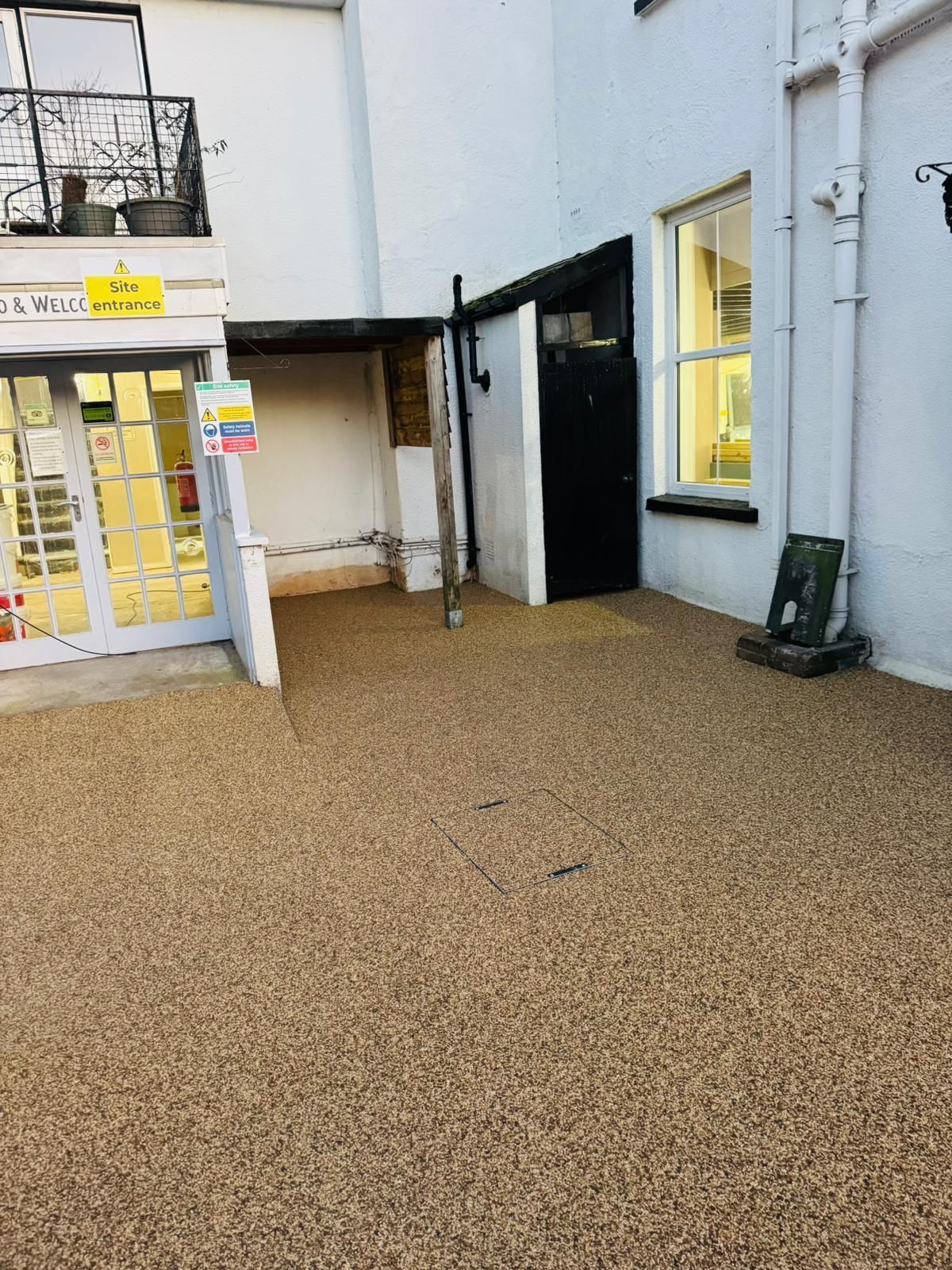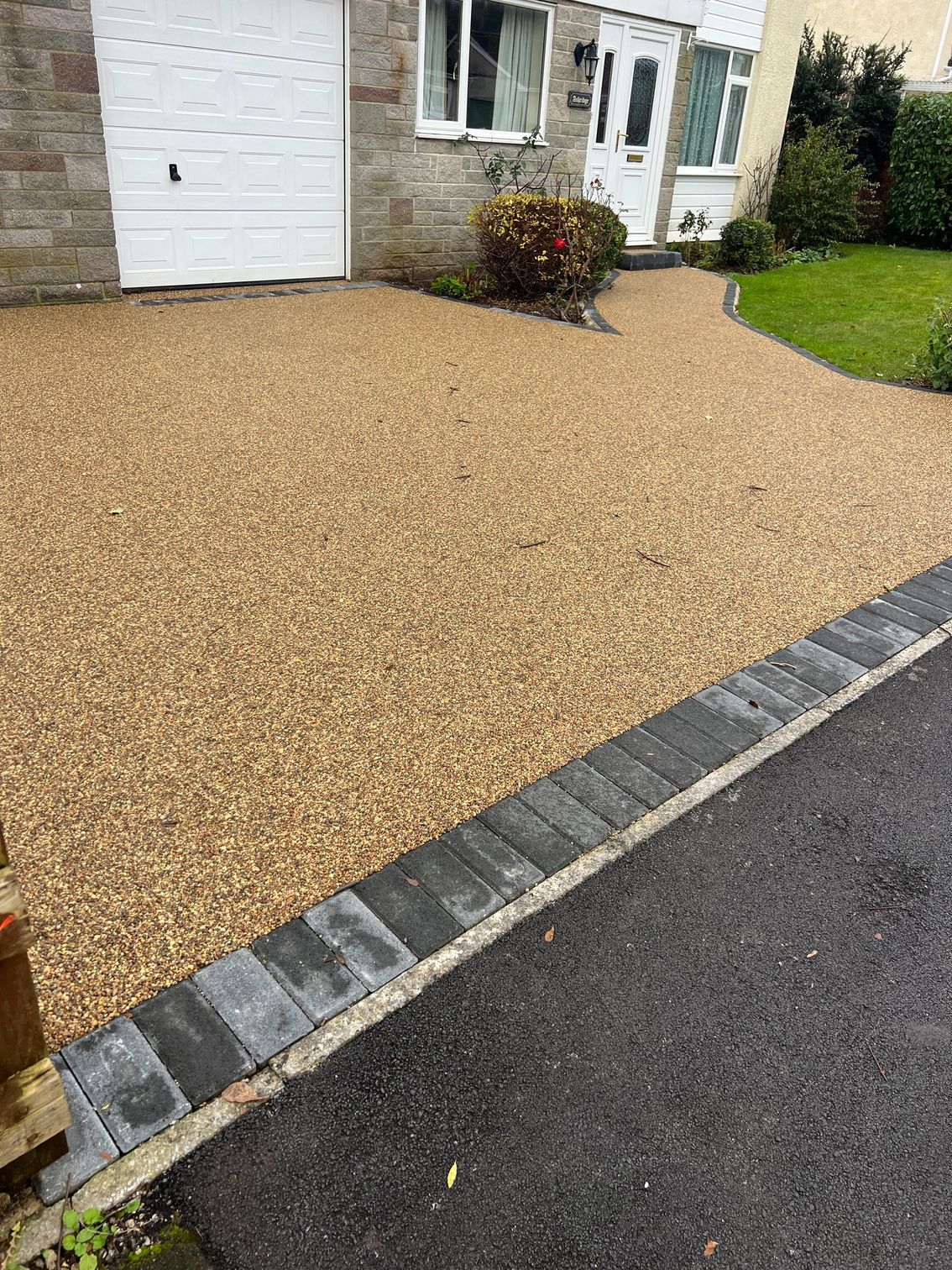Refresh Your Resin: A Step-by-Step Guide to Power Washing Your Driveway
Resin driveways have become increasingly popular due to their durability, aesthetic appeal, and eco-friendly status. As a form of sustainable paving, these surfaces require minimal upkeep. However, regular driveway cleaning is essential to maintain their appearance and functionality. Power washing is an effective method for keeping your resin driveway in top condition. This guide will walk you through the process, ensuring you can preserve your driveway's beauty and extend its lifespan.
Understanding Resin Surfaces
Before beginning the
power washing process, it's crucial to understand that resin surfaces require a gentler approach than traditional concrete or asphalt driveways.
Pressure washing at a setting that is too high can damage the resin bond, so it's essential to use the proper techniques.
Preparation
Start by preparing the area. Remove any loose debris, furniture, or potted plants from the driveway. Cover nearby plants or delicate objects to protect them from overspray. This preparation is a crucial part of effective
driveway maintenance.
Choosing the Right Equipment
Next, choose the right equipment. A pressure washer with adjustable settings is ideal for
resin driveways. To avoid damaging the surface, set the pressure between 1500 and 2000 PSI. Use a wide-angle nozzle to distribute the water pressure evenly.
The Cleaning Process
Begin the cleaning process by wetting the entire driveway with plain water. This initial rinse helps loosen dirt and prepares the surface for deeper cleaning. Work in small sections, keeping the nozzle at least 12 inches from the surface. Use sweeping motions to ensure even cleaning and prevent streaking.
Dealing with Stubborn Stains
For stubborn stains or heavily soiled areas, you may need a mild, eco-friendly detergent designed explicitly for resin surfaces. Apply the cleaner according to the manufacturer's instructions, allow it to sit briefly, and then rinse thoroughly with the pressure washer.
After cleaning the driveway, rinse with clean water to remove any remaining detergent or loosened dirt. This step is crucial for maintaining the integrity of your low-maintenance driveways.
Post-Cleaning Care
Once the cleaning is complete, allow the driveway to dry completely before use. This is an excellent time to inspect your driveway for any areas needing repair or touch-ups, ensuring your
driveway design remains intact.
Regular power washing, typically once or twice a year, can significantly
enhance your home's curb appeal and extend the life of your resin driveway. Maintaining these eco-friendly driveways is essential, ensuring they continue to look great and function well.
Following these steps, you can effectively clean your resin driveway, preserving its appearance and functionality. Remember, a well-maintained resin driveway adds value to your property and contributes to a positive first impression of your home.
View our YouTube video on the subject below:




